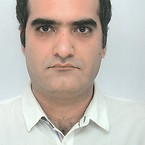Iranian women's ice hockey is celebrating success in its first international event, with the national team taking second place at competitions in the United Arab Emirates after defeating the host.
The team lost to Russia in the finals after defeating them earlier in the competition, but the achievement was still indisputable - especially given that the athletes had not been given any support from Iranian sporting federations.
Like women's cycling, which IranWire highlighted last week, women's ice hockey is enjoying increasing success, despite all the obstacles and an often hostile environment at home. IranWire looks back on its history, and at the role women athletes have played in bringing it to more prominence.
***
The International Ice Hockey Federation was founded in 1908, but it wasn't until 111 years later that Iran finally established, and then recognized, its own federation.
It was quite a feat, given that Iran was not even home to a standard ice rink. In some ways, that was justified. With Iran's tropical climate, it has not necessarily seemed logical for an ice rink to take priority. However, the United Arab Emirates (UAE), a desert country, managed to position its national ice hockey team as the strongest in the Middle East two decades ago.
Now Iran's team has beaten the best in the region, and on its home turf.
The Iranian national women's ice hockey team was formed in 2020, essentially comprising of skaters from Tehran's Inline Skating Club. At the beginning of 2020, the Iranian Ice Hockey Federation received formal recognition from the the international federation, but because there was no basic training available for teenagers and young people taking part in the sport, ice skaters, including some stars, were invited to play ice hockey.
Eventually, these women athletes joined the Iranian national ice hockey team. And yet, despite all their work and international recognition, the National Ice Hockey Federation of Iran refused to sponsor the team. It was, however, awarded sponsorship by the huge Tehran shopping complex Iran Mall.
"Security Issues" Block ProfessionalismWhen it comes to the team's coaches and technical staff, they too have had to work hard to pursue their goals. In fact, they, like the team, face serious obstacles, with athletes and trainers alike all being informed that their attempts to become more professional were hindered by "security issues." Maryam Irandoost, the women's national team head coach, brought in her father as the team's technical director, and yet he was kept from watching the team play after hostile intervention from the Ministry of Sports and Youth and its intelligence department, which indicated that it was not appropriate for a man in his seventies (or any age) to watch women play sport, stating that it was un-Islamic. However, there appeared to be no legal objection to Irandoost observing at a distance.
So Nosrat Irandoost was banned from accompanying the team to any of their foreign tournaments. The same was true for Jalal Basharzad, another coach who was forced to train the goalkeepers from a distance.
Kaveh Sadeghi had been the head coach of both the Iranian men's and women's ice hockey teams. But after he too was banned from traveling with the women's team to the UAE and other tournaments abroad, Azam Sanaei was chosen to lead the team in her capacity as a captain.
So, with their captain but without a coach, the team headed off to the championships in the UAE. While there, the goal was to gain experience for the Asian Games in the Philippines, scheduled to take place in May 2022.
It is impossible to know how the team would have done if it had competed when the games had initially been scheduled to take place, back in spring 2021. Coronavirus put an end to that. But now, with the games happening next year, the team definitely has experience and a chance of further success.
Ice hockey has been now been "officially" played in Iran for about two years, but it's continued to be difficult for anyone - boys, girls, women, men - with an interest in the sport to take it up with any real seriousness.
In particular, the country's women skaters have endured isolation and faced discrimination. In 2019, Iranian filmmaker Sam Kalantari made No Place for Angels, a documentary about their experiences. It won the Fajr Film Festival Crystal Simorgh Award, along with four awards from the International Truth Film Festival, including the Special Audience Award, making it one of Iranian film's most widely-celebrated Iranian documentaries in recent years.
Now, despite the hardship, the team deserves to be proud, arriving back in their homeland with the unexpected title of second place in the UAE competition. Their message is clear: Iran's Ice Hockey Federation and the Ministry of Sports and Youth cannot stop them from pursuing their dreams and having an impact on the international stage.


